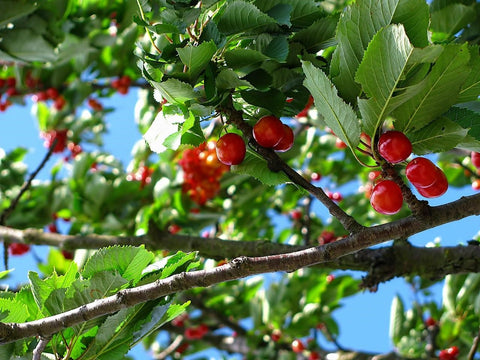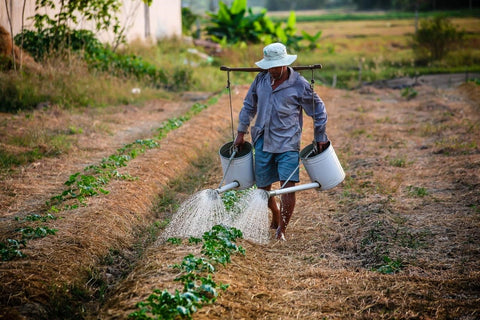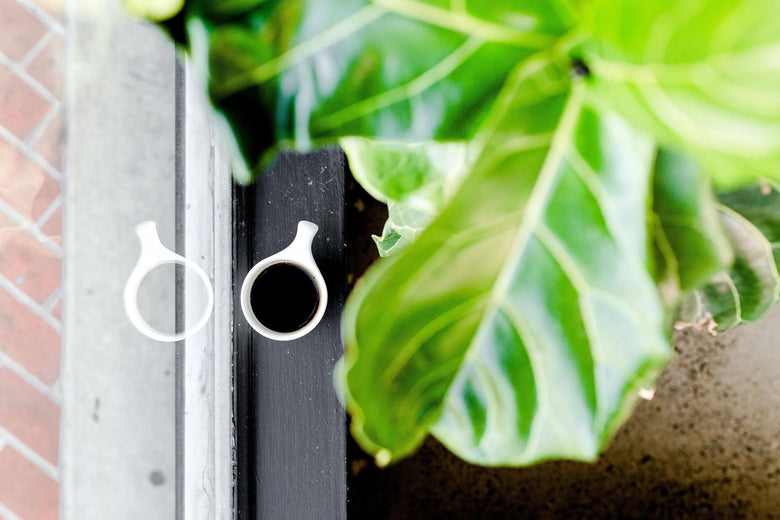The organic movement is taking the world, impacting the way everyone buys food. If you often scan the grocery store aisle looking for organic versions of your favorites, should you with coffee as well?
The natural answer is “Yes!”
Why would you hold yourself to the organic standard with all but coffee? Isn’t anything grown without pesticides inherently better? In most cases, yes, but with coffee, there’s more than meets the eye.
Organic coffee is not so black and white. And it may not be worth searching for.
Read: The Incredible Journey Of The Coffee Bean (Seed To Cup)
Let me show you why.
Firstly, Certified Organic Doesn’t Mean No Pesticides
It may not surprise you, but it came as a bit of a shock to me.
I initially thought that no pesticides or fertilizers could be used for a crop to truly be organic in the most basic sense, but that’s not what it means at all.
To be Certified Organic, a crop must…
- Be produced without using banned materials and methods, such as sewage sludge, ionizing radiation, and genetic engineering
- Be overseen by a USDA National Organic Program-authorized certifying agent
However, there are many fertilizers and pesticides that are allowed. Most of them of are non-synthetic (naturally occurring), but there are a few approved synthetic ones in the mix.
Now, this isn’t to say that this certification is a hoax or scam, but we should face the facts. Even the USDA approves the use of several synthetic fertilizers and pesticides in the Certified Organic process.
Read: Here's Why Some Coffees Are Very Expensive
Now, let’s get back to coffee.
Most Coffee Farmers Cannot Afford The Certification
Guess how much it costs to have a crop certified as organic…
Between $700 and $3000 per year.
Guess what percentage of coffee farmers in Mexico live in poverty…
48% of the population in Mexico’s 10 coffee growing regions. Even the state of Chiapas, known for its specialty-grade beans, has insane coffee producer poverty. In the city of Chilon, 93% of farmers live in poverty!
And the case is similar all across the globe.
Here’s the reality: most of the world’s 25 million coffee farmers are smallholders that just get by. There are quite a few that really thrive, but those are typically larger corporate farms.
I don’t want to oversimplify a very complex issue, but for the most part, coffee farmers around the world cannot pay for organic certifications. They are already facing financial risk on a number of fronts (like adapting to climate change) and aren’t eager to take on the organic financial burden.
Read: 3 Reasons Buying Cheap Coffee Is Bad For The World
A Lot Of Coffee Is Organic Anyway
Ironically, many of these 25 million smallholder coffee farmers grow organic coffee anyway, largely because they cannot afford synthetic fertilizers and pesticides.
Coffee is one of the most rustically grown crops in the world. This is especially true in countries like Ethiopia and Yemen, where farmers often just let the coffee grow as it wants in fields and forests.
So, while the green sticker may not be on the bag, it often is fertilizer and pesticide-free, especially likely if it came from a smallholder farm.

Transitioning To Organic Is Risky For Farmers
Imagine just barely making enough money to care for your family each year. Would you be willing to risk their well-being to grow organic coffee, even if there was a chance at greater profits later on?
Read: How Much Should You Pay For Coffee Beans?
Farms that choose to brave the transition see a serious drop in yield. Many farmers eventually return to a high yield, but it can take years. Sure, organic coffee often brings in 15 cents more per pound to farmers, but even that doesn’t necessarily cover the losses in yield over several years.
Profits and yield aside, the transition is expensive and risky, and it seems unfair for us to put that pressure on farmers who are already trying their best to provide for their families.
Is Organic Coffee Higher Quality Than Conventional?
This isn’t where most of the conversation around organic coffee takes place, but quality is important, especially for us in the specialty coffee industry.
There are many factors that affect a coffee’s quality
- Plant genetics
- Soil composition
- Climate
- Altitude
- Plant health
- Harvesting skill
- And beyond
Many farmers that make the switch to organic do see a jump in quality. However, this is likely because they’re taking intentional steps towards quality on multiple fronts, not just because they’re growing organically.
Read: Skip The Coffee Aisle, Here's How To Find The World's Best Coffee
Not everyone sees a quality boost, however, so it’s really hard to make a blanket statement about quality when it comes to organic coffee. There doesn’t seem to be any clear data, but there are stories we can learn from.
The Case Of Oscar Omar Alonso
Let me introduce you to a farmer who took the risk and dove into organic coffee.
Oscar Omar Alonso is a coffee farmer in Honduras, where 92% of coffee farmers are smallholders and vulnerable to economic hardship.
When his coffee farm wasn’t generating enough money to provide for his family, he realized he needed to try something new - and fast.
In 2000, Oscar’s farm produced roughly 39,000 kilograms with the aid of chemical fertilizers. After that harvest, he began working with a local organization to transform his farm to all-organic growing.
The next year, Oscar’s farm produced… only about 3,500 kilograms.
It was a 90% drop in yield.
Oscar was crushed. He nearly quit coffee farming altogether, but he found hope in an unlikely metaphor.
Read: Why Gratitude Makes You Happy
“When you ride a bike, you’ve got to pedal to move forward. You’ve got to keep going and think about how to maintain your balance, since a bike has no reverse. A bike was my inspiration during the hardest moment of my life,” he says.
Oscar spent the new few years experimenting with ways to enrich his crop organically. Most of his ideas didn’t pan out, but then he tried coconut husk fertilizer. He was the first to try it in the country for growing coffee.
Of all the fruits and other natural fertilizers, the coconut husks were the most successful. It took Oscar’s farm 15 years to recover the yield it had lost, but his crop has become more flavorful and profitable than ever.
Oscar’s story shows how growing organic coffee can be very profitable and can even lead to healthier coffee plants and tastier beans.
But it also shows how risky it is. Without the financial support of local organizations, Oscar’s farm wouldn’t have lasted the transition.

Is Organic Coffee Worth It?
We’re faced with a few truths here:
- Organically grown coffee is better for the world in a variety of ways
- Most farmers cannot afford or risk the investment to be certified
- Many small farms already grow organic coffee
It’s very important that we reward farms that have taken the leap towards organic. However, we can’t ostracise those that haven’t done so yet.
Read: 5 Ways To Make Your Coffee More Eco-Friendly
One day, maybe the world will be rid of non-organic coffee. I think we can all agree that’s the goal. But, for now, buying only organic coffees will unnecessarily penalize farmers that cannot make the transition.
Organic coffee is great, but it’s not the only way to make change by your purchasing habits.
Find out where your beans come from before you purchase and keep your coffee suppliers accountable. Support coffee companies and farms that are intentional about being eco-friendly, even if they can’t afford the formal certification.
For example, we’re proud to partner with Roberto Zelaya of San Antonio Estates in El Salvador. Though his crop isn’t Certified Organic, he’s a leader in sustainability in his area. He holds an annual average of 97.5% success with the Rainforest Alliance and he helps El Salvador’s agricultural ministry teach classes on sustainability.
If you’d like to always stay stocked with eco-friendly, sustainably sourced beans check out the JavaPresse Coffee Club. We can’t guarantee that they’re all certified organic, but we can guarantee that they come from quality-centric and environmentally conscious farms.




